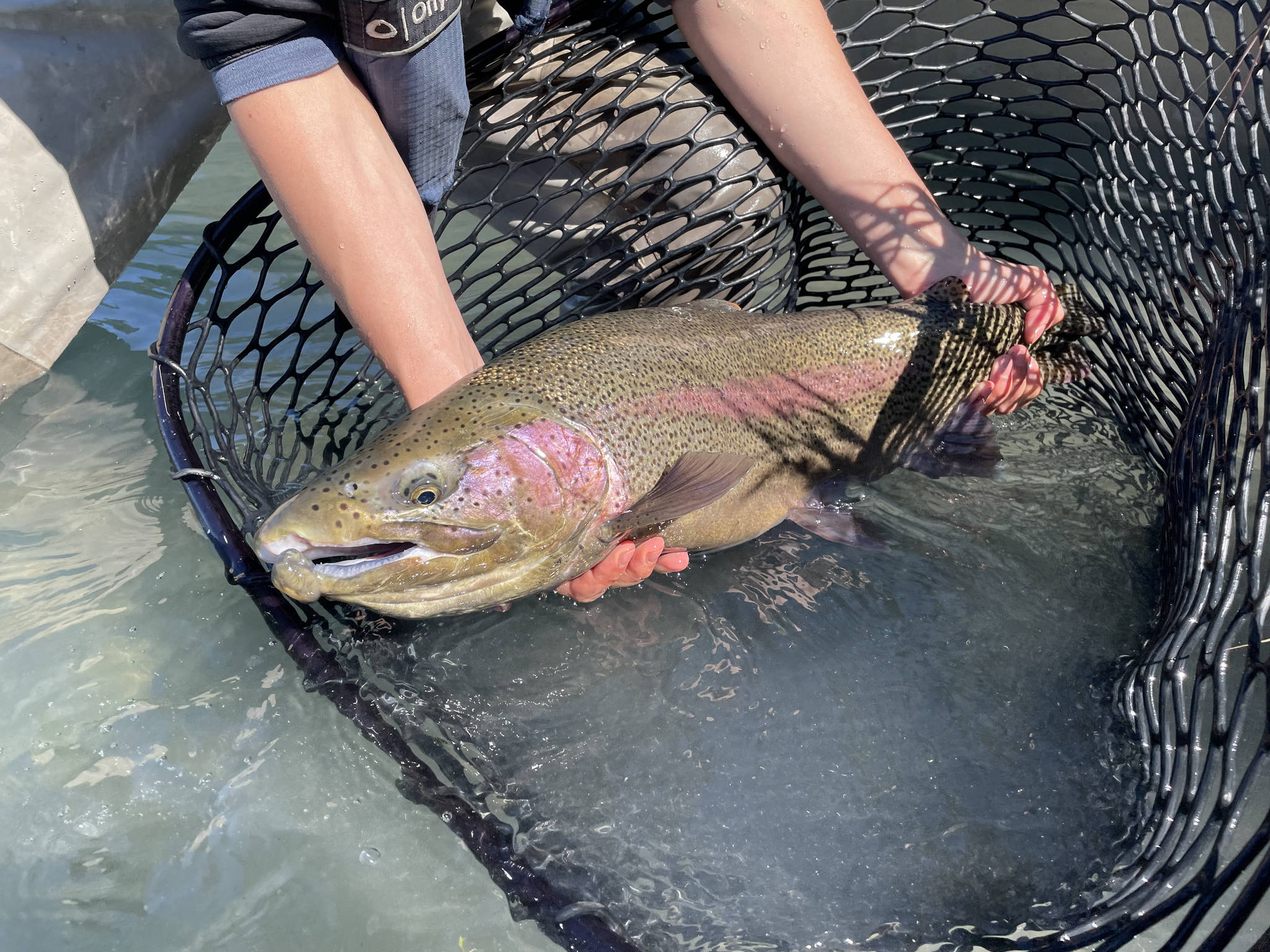By Jeff Lund
For the Juneau Empire
Sometimes the end leaves no doubt, even when the end features no fish. It’s not a numbers or time thing. It’s a feeling.
As a man forced me to reel up as his tail-hooked king salmon ran downriver into the small little edge I was fishing (away from the chaos upriver), I inched closer to that point.
I turned and watched him as he guided the tired fish to shore, kicked some water on it, then took out his cellphone. I returned to my casting.
When I booked a guide for the first day of my honeymoon with my wife, I was curious as to why the guide steered us toward the Kenai River for trout, even though we said we’d prefer the Kasilof River for kings. He said there was better access for king salmon on the Kasilof than there was for rainbows on the Kenai, so since we wanted to do both, he suggested maxing out the rainbow program.
It did not disappoint. The Kenai had just opened to motors so we were able to reach a part of the river a short distance from where it meanders out of Skilak Lake and find trout that had been fished for the last few days, not relentlessly hammered for weeks or months.
It was the type of day you hope to have with a guide. Good enough you are happy with your investment, but not so good you feel there is nothing left. Especially on the Kenai since there is so little public access. And yes, my wife caught the biggest fish, a rainbow that was nearly 30 inches.
Then came the showdown with the hatchery kings on the Kasilof.
There were plenty of drift boats (no motors to fish), but no angler in any of the boats was fly fishing. The shore fishing program was primarily a spinning rod with a fly roughly 2 feet down from a heavy weight. Casts were short and featured a sharp hookset through the swing at the end of the drift. I had heard of flossing before — the act of manipulating the line into a fish’s mouth that would otherwise not bite, then pulling the line quickly which sets the hook on the outside of the fish’s mouth.
I snagged below the river mouth at the terminal fishery in Whale Pass on Prince of Wales Island, so this is not a comment on snagging as a practice that is beneath me. This isn’t even a comment on the flossing method or even ethics in general.
This is about that feeling when you show up, and you discover that despite all the colors and sizes of flies in your box, it’s probably not going to happen. Then, after hours and hours of casting and adjusting sink tips and weight to make sure you are on the bottom, you come to terms with the fact that it’s not going to happen and you have to make a decision. Do you quit prematurely? Do you get angry at everyone else for running the more effective program and resent the universe for rewarding them and not you? Or do you just keep fishing until the end taps you on the shoulder and says, “it’s time.”
I had seen a few kings get caught, either with bait or the aforementioned heavy-weight, quick-drift floss. There were some sockeye that were being caught too, but neither Abby or I had so much as a hook up. So after a morning session, a drive down to Homer to do some sightseeing, I was back on the Kasilof. Abby, sensing I needed closure to my, at-times Ahabian, pursuit of kings with my fly rod, told me to go alone because she had had her fill of the spectacle.
It was a little over an hour in that the guy called out and lifted his line over my head, chasing the tail-hooked king.
I threw another great cast into the frigid, blue water and waited for a strike I know wouldn’t come, but stayed true to the practice of quality repetitions. At the end of my swing I looked behind me to see the man carrying the fish up the bank toward the crowds.
I reeled up, put the Kasilof behind me and looked forward to the next eight days of fishing with my wife.
• Jeff Lund is a freelance writer based in Ketchikan. His book, A Miserable Paradise: Life in Southeast Alaska, is available in local bookstores and at Amazon.com. “I Went to the Woods” appears twice per month in the Sports & Outdoors section of the Juneau Empire.

